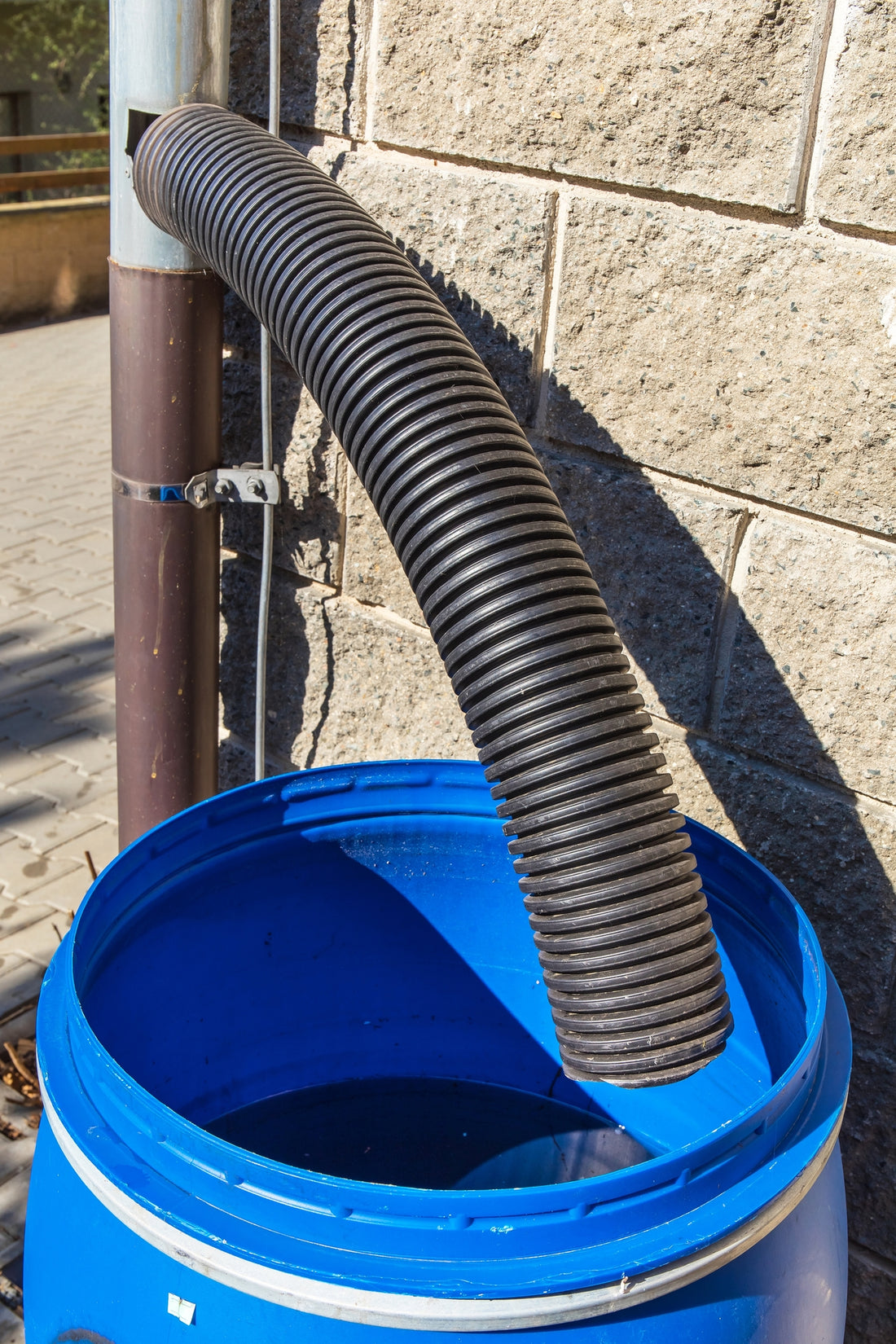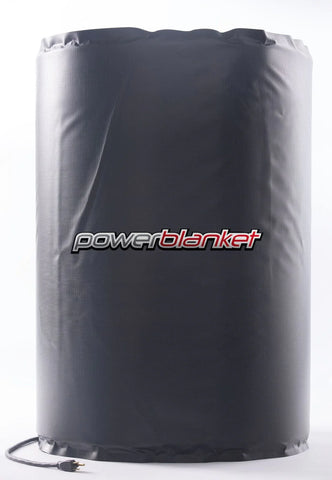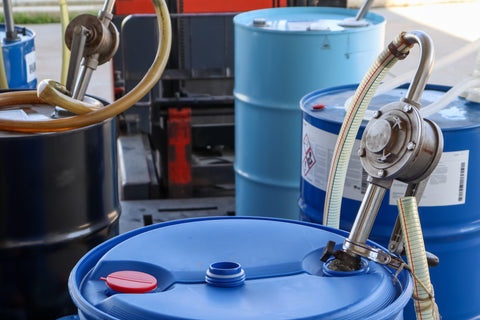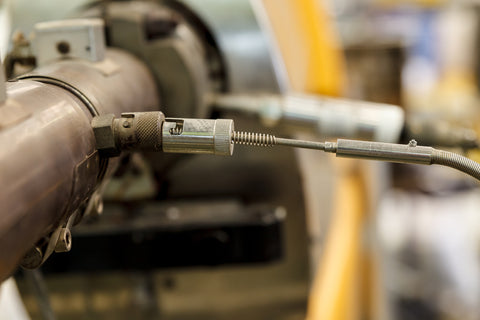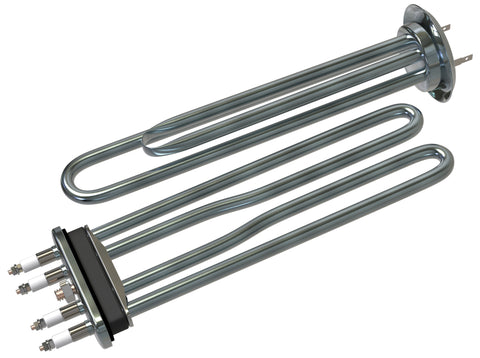Keeping Your Water Barrels Warm: Tips and Tricks for Using Water and Rain Barrel Heaters
Water and rain barrels are becoming increasingly popular to conserve water and reduce water bills. They are simple, cost-effective systems that collect and store rainwater from rooftops, gutters, and downspouts. Water barrels are typically made of plastic, metal, or wood, ranging in size from small, 50-gallon barrels to larger, 500-gallon tanks. Rain barrels are especially popular in areas with drought-prone climates, where every drop of water counts.
While water barrels are an effective way to conserve water, they have one major drawback: they can freeze during the winter months. When the temperature drops below freezing, the water inside the barrel can freeze, which can cause the barrel to crack or burst. This not only damages the barrel but also wastes the water inside it. To prevent this from happening, it's important to use a water barrel heater or a rain barrel heater to keep the water warm.
This article aims to provide readers with a comprehensive guide to using water and rain barrel heaters. We will cover different types of heaters, how they work, and how to choose the right one for your needs. We will also provide tips and tricks for using and maintaining water barrel heaters, as well as alternative methods for keeping water barrels warm. By the end of this article, readers will have a better understanding of how to keep their water barrels warm, even during the coldest months of the year.
Understanding Water Barrel Heaters
Types of Water Barrel Heaters
There are several types of water barrel heaters available in the market. Each type has its own advantages and disadvantages, and the choice of heater will depend on factors such as the size of the barrel, the climate conditions, and the power requirements. The three most common types of water barrel heaters are:
Immersion Heaters: These are electric heaters that are designed to be immersed in the water. They typically come with a long cord and a heating element that is placed inside the barrel. Immersion heaters are easy to install and are relatively inexpensive. However, they may not be suitable for larger barrels, and they can be a safety hazard if not used properly.
Submersible Heaters: These are similar to immersion heaters, but they are designed to be completely submerged in the water. They are more efficient than immersion heaters and can heat the water more quickly. Submersible heaters are safer than immersion heaters because they are designed to shut off automatically when the water reaches a certain temperature.
Wrap-Around Heaters (Heater Blankets): These electric heaters are designed to be wrapped around the barrel. They are available in different sizes to fit different barrel sizes. Wrap-around heaters are more expensive than immersion and submersible heaters, but they are more efficient and can heat the water more evenly. They are also safer than immersion heaters because they do not come in contact with the water.

How They Work
Water barrel heaters use electricity to heat the water inside the barrel. The heating element is either immersed in the water or wrapped around the barrel, depending on the type of heater. The heater is plugged into an electrical outlet, and it heats the water to a predetermined temperature. Some water barrel heaters come with a thermostat that allows the user to set the desired temperature.
Pros and Cons of Each Type
Each type of water barrel heater has its own set of advantages and disadvantages. Immersion heaters are easy to install and inexpensive, but they may not be suitable for larger barrels. Submersible heaters are efficient and safe, but they are more expensive than immersion heaters. Wrap-around heaters are efficient and heat the water evenly, but they are the most expensive option. When choosing a water barrel heater, it's important to consider the size of the barrel, the climate conditions, and the power requirements, as well as the pros and cons of each type of heater.

Choosing the Right Water Barrel Heater
Factors to Consider
- Choosing the right water barrel heater ensures the water stays warm and does not freeze. There are several factors to consider when selecting a water barrel heater, including:
- Size of the Barrel: The size of the barrel will determine the size of the heater needed. For larger barrels, a submersible or wrap-around heater may be more appropriate than an immersion heater.
- Climate Conditions: The climate conditions in the area will also play a role in selecting the right heater. In colder climates, a more powerful heater may be needed to prevent the water from freezing.
Power Requirements: It's important to consider the power requirements of the heater to ensure that it can be plugged into an electrical outlet and does not consume too much power.
Tips for Choosing the Right Heater
To select the right water barrel heater, consider the following tips:
- Read Reviews: Reading reviews from other users can help determine the effectiveness and reliability of different types of water barrel heaters.
- Consult a Professional: Consulting with a professional can provide insights into which type of heater best suits your needs.
- Check the Warranty: Check the heater's warranty to ensure that it is covered in case of any defects or malfunctions.
Alternative Methods for Keeping Water Barrels Warm
There are alternative methods for keeping water barrels warm, such as:
- Insulating the Barrel: Wrapping the barrel with insulation material, such as bubble wrap or foam, can help keep the water warm.
- Placing the Barrel in a Sheltered Area: Placing the barrel in a sheltered area, such as a garage or shed, can protect it from the elements and keep it warmer.
- Covering the Barrel: Covering the barrel with a tarp or lid can help retain heat and prevent the water from freezing.
While these methods may not be as effective as using a water barrel heater, they can still help prevent the water from freezing and provide some insulation.
Stay Warm
Using water barrels is an eco-friendly and cost-effective way to conserve water, but it's important to ensure that the water stays warm and does not freeze in colder climates.
Water barrel heaters provide an effective solution to this problem, and there are several types to choose from, including immersion heaters, submersible heaters, and wrap-around heaters.
When selecting a water barrel heater, it's important to consider factors such as the size of the barrel, climate conditions, and power requirements. It's also a good idea to read reviews, consult with a professional, and check the warranty before purchasing.
While there are alternative methods for keeping water barrels warm, using a water barrel heater is the most efficient and reliable option. With the right water barrel heater, you can enjoy a steady supply of warm water year-round while reducing your water consumption and environmental impact.


